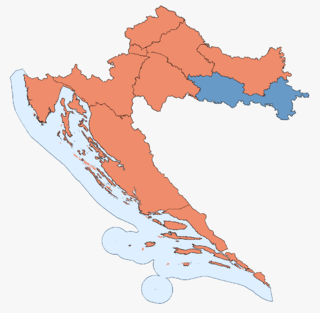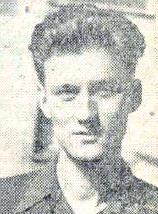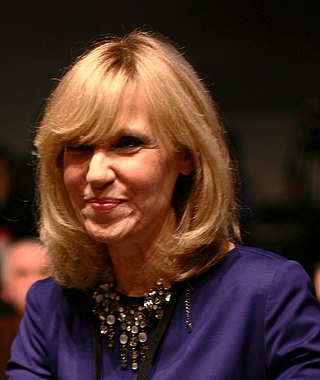
League of Communists of Croatia was the Croatian branch of the League of Communists of Yugoslavia (SKJ). It came into power in 1945. Until 1952, it was known as Communist Party of Croatia. In the early 1990s, it underwent several renames and lost power.

Ivica Račan was a Croatian politician who served as Prime Minister of Croatia from 2000 to 2003, heading two centre-left coalition governments.

The Social Democratic Party of Croatia is a social-democratic political party in Croatia. The SDP is anti-fascist, progressive, and strongly pro-European. The SDP was formed in 1990 as the successor of the League of Communists of Croatia, Croatian branch of the League of Communists of Yugoslavia, which had governed Croatia within the Yugoslav federation since World War II.
The Istrian Democratic Assembly is a centre to centre-left, regionalist, liberal political party in Croatia primarily operating in Istria County.

The Croatian People's Party – Liberal Democrats is a social-liberal political party in Croatia.
LIBRA - Party of Liberal Democrats was a short-lived Croatian social-liberal political party active between September 2002 and August 2005. During its existence the party ran in only one parliamentary election, in 2003, and won three seats in the 151-seat 5th Assembly of the Croatian Parliament.

Dražen Budiša is a Croatian politician who used to be a leading opposition figure in the 1990s and a two-time presidential candidate. As president of the Croatian Social Liberal Party through the 1990s he remains to date the only Leader of the Opposition not to have been from either the Croatian Democratic Union or the Social Democratic Party.

Parliamentary elections were held in Croatia on 3 January 2000 to elect members of the Chamber of Representative. They were the first elections to be held after the expiration of a full four-year term of the previous Chamber of Representatives.

Antun Vujić is a Croatian politician, philosopher, political analyst, lexicographer and author serving as a director of the Miroslav Krleža Institute of Lexicography since 2012. He was a member of Croatian Parliament and Minister of Culture in the Croatian Government from January 2000 to December 2003.

Zdravko Tomac was a Croatian politician.

Ante "Miko" Tripalo was a Croatian politician. He was one of the members of Croatian Spring, a movement for higher level of autonomy of SR Croatia within SFR Yugoslavia.
Coalition of People's Accord was the bloc of mostly moderate nationalist and liberal parties formed on the eve of first multi-party elections in Croatia in 1990.

Željka Antunović is a Croatian former politician who served as acting president of the Social Democratic Party between April and June 2007, and as Minister of Defence from 2002 until 2003 in the second cabinet of Ivica Račan. She was the first and to date only female holder of the office.
Goran Granić is a former Croatian centre-left politician who was the deputy prime minister from 2000 to 2002.

Croatian Social Democrats, abbreviated HSD, is a minor left-wing Croatian political party. It came into existence in 2004 as a splinter party of the much more influential Social Democratic Party of Croatia (SDP).

The Seventh Government of the Republic of Croatia was the first of two Croatian Government cabinets led by Prime Minister Ivica Račan. It was appointed on 27 January 2000 by a decree of the Acting President of the Republic and Speaker of Parliament, Vlatko Pavletić. The cabinet was confirmed by a parliamentary vote of confidence in the Chamber of Representatives on 2 February 2000, with 122 of 151 Members of Parliament voting for, 1 against and 1 abstaining. Its term ended on 30 July 2002, when it was reconstructed and replaced by Cabinet of Ivica Račan II. The cabinet was formed following the 2000 parliamentary elections, in which the centre-right party Croatian Democratic Union (HDZ) was defeated by a broad coalition of several centre-left parties. This marked an end to HDZ's dominance in Croatian politics since the first multi-party election in 1990. However, the period under Prime Minister Račan was marred with constant disagreements among coalition members, which later led to some parties leaving the ruling coalition. This ultimately paved the way for HDZ's return to power in the 2003 parliamentary elections.

The Eight Government of the Republic of Croatia was the second of two Croatian Government cabinets led by Prime Minister Ivica Račan. It was announced on 30 July 2002 and its term ended on 23 December 2003. Račan's second cabinet was formed after Croatian Social Liberal Party (HSLS) and Istrian Democratic Assembly (IDS) had decided to leave the ruling six-party coalition. The cabinet was succeeded by Cabinet of Ivo Sanader I, following the centre-right Croatian Democratic Union's return to power in the 2003 parliamentary elections.
Vjeran Zuppa was a Croatian intellectual, dramaturge, literature theorist, poet, translator and the chairman of the Theater ITD
The Croatian Left has consisted of a broad range of individuals, groups, and political parties who seek egalitarian, economic, social and cultural rights in Croatia. Left-wing ideologies came to Croatia in the late 19th century during the Austria-Hungary regime. In 1894, the Social Democratic Party of Croatia and Slavonia was formed. It was the first workers party in Croatia at the time. In the Kingdom of Serbs, Croats and Slovenes the leftist movement grew but it was suppressed by the royal government. In 1920, the Communist Party of Yugoslavia was proclaimed illegal and its sympathizers were brutally persecuted after winning a large number of positions in the local elections. During the 1920s, Stjepan Radić and his Croatian Peasant Party led a centre-left agrarianism and anty-royalist policy. They were the leading Croatian political party at the time. After the assassination of Radić in 1929, the Croatian Peasant Party was taken over by Vlatko Maček who enforced a more conservative and nationalist rhetoric. During the Socialist Yugoslavia era, the League of Communists of Yugoslavia was the only legal party in the country. In 1990, political plurality was restored and a number of left-wing parties emerged with the most notable one being the Social Democratic Party of Croatia.

Ingrid Antičević-Marinović is a Croatian lawyer and former politician who serves as justice of the Constitutional Court of Croatia since 7 June 2016. She had previously served as a 9th Minister of Justice, Public Administration and Local Self-government in the center-left Cabinet of Ivica Račan II from 2001 to 2003. She was the first woman to serve as Justice Minister in Croatia as well as first woman lawyer in Zadar's history.













